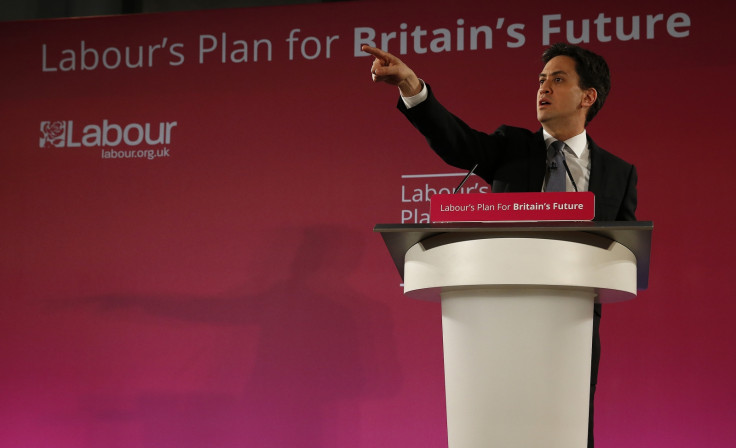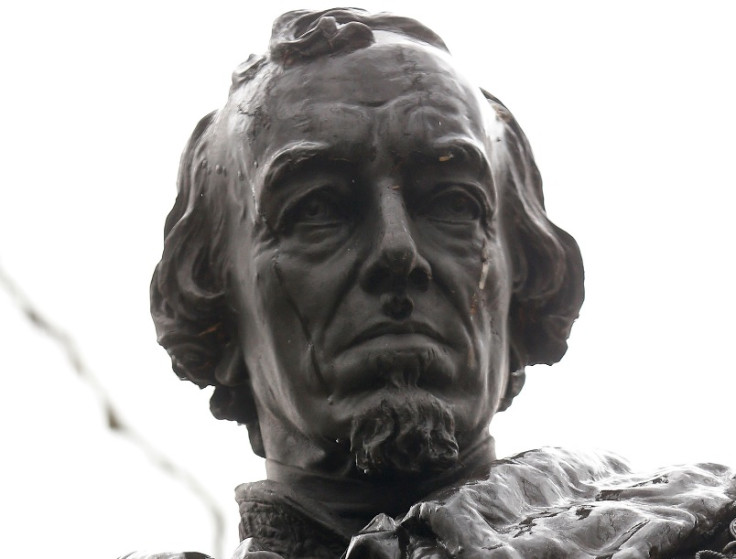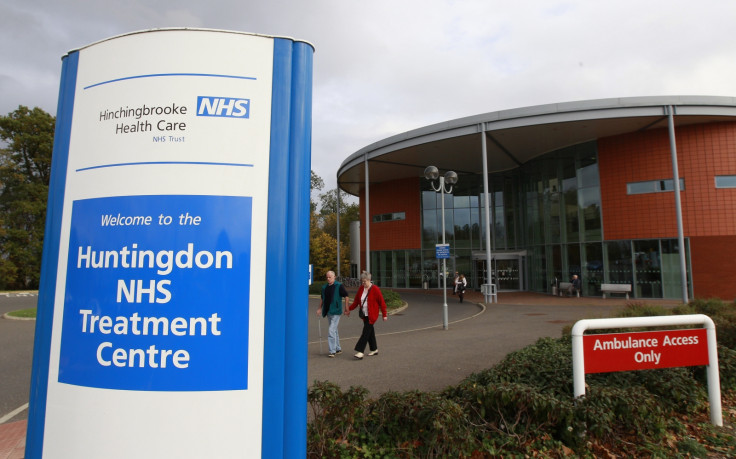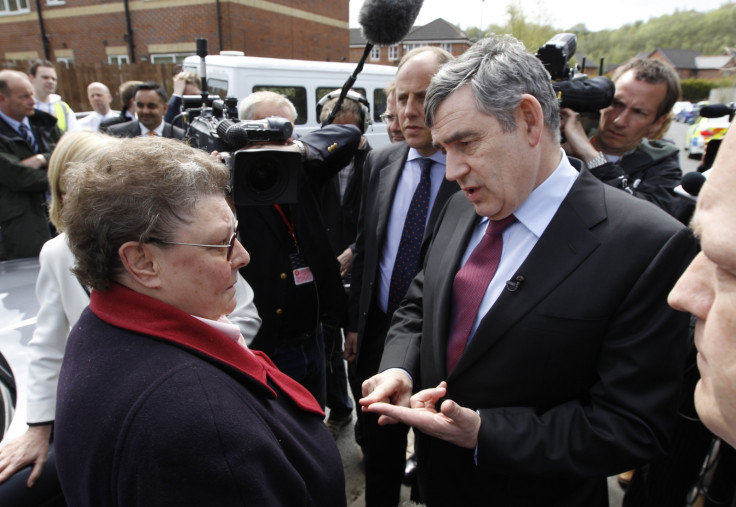What we learnt from Ed Miliband's 2015 General Election campaign speech

Turkey fully digested and festive hangover defeated, Ed Miliband launched Labour's "long election campaign" in Salford.
With only four months to go until the general election this May and Cameron and Co biting at his ankles in the opinion polls, Miliband outlined his plan for Britain's future – a proposal that Miliband has always argued would move the country and his party past New Labour.
Miliband framed the campaign ahead as a fight. It makes sense, Labour have always billed themselves as the party of the under-privileged and the tribune of those in need.
Every Labour leader, weather it was Tony Blair or Michael Foot, has had to channel Clement Attlee's New Jerusalem to some extent.
"We're fighting for a Britain where every day working people are properly rewarded once again," Miliband said.
"We're fighting for a Britain where every young person, whatever their background, can begin their working lives with a future that promises to be better, not worse, than their parents'.
"We're fighting for a Britain where everyone plays by fair rules, including the most powerful like energy companies and the banks.
"We're fighting for a Britain that deals with its debts responsibly, without shredding our NHS and vital public services.
"We're fighting for a true recovery and real, enduring prosperity that extends to the kitchen tables of all working families across Britain.
"We're fighting to be the kind of country that we all know we have it in ourselves to be."
Pre-distribution, Miliband's much mocked political philosophy, was at the ideological heart of the speech.
The idea that the state should try to prevent inequalities, rather than dealing with them through tax credits and benefits, is his social democratic counter to Blair's third-way.
"More just, more equal and more prosperous," Miliband argued.
"And we're going to fight that fight in the right way.
"We will offer hope, not falsehoods."
The political theory

There was also a touch of Lord Glasman's Blue Labour in the speech.
A hint of mutualism and maybe a further explanation of what he means by One Nation Labour, which borrows the language of former Conservative Prime Minister Benjamin Disraeli.
"We know the depths of our values matter more than the depth of our opponents' pockets," Miliband said.
"We will win this election, not by buying up thousands of poster sites, but by having millions of conversations.
"I am going to be leading those conversations in village halls, community centres, workplaces right across the country, starting this very week and every week from now until the election."
He added: "In this election there is a choice not just between parties but between two competing visions of how our country can succeed.
"A Tory plan that believes we can succeed with just a few at the top doing well.
"Or a plan – Labour's plan for Britain's future – that puts working people first."
Miliband then took the fight to the Tories. He claimed Cameron's party, driven by ideology, had stripped the government "to its bare bones" and "given huge tax cuts to the very wealthiest".
The labour leader followed up this jab with his trademark "cost of living crisis" attack, claiming that the UK had become a "country of food banks and bank bonuses".
"For the first time since the 1920s, working people will be worse off at the end of a government than they were at the beginning" he argued.
"Zero-hour contracts have exploded, driving wages down across our country, and have allowed some firms to play havoc with people's lives.
"The energy companies have doubled the profit they make from each family and the average bill has gone up £300 a year.
"And most inexcusable is the short-changing of the greatest hope for our future, our children, who this Government is failing to prepare for the challenges of the 21st Century.
"At a time when education and training are critical to the chances of earning a decent wage—and to the long-term success of our country– tuition fees have trebled and apprenticeships for young people are actually falling.
"And they call all of that a success."
The deficit, stupid
Crucially, Miliband remembered the deficit this time, thus overcoming his bout of deficit amnesia last September when a 66-minute note-less speech left the Labour leader in embarrassment after forgetting to mention the country's debt and what he would do about it.
"Cameron promised to eliminate the deficit by 2015. Well, 2015 is now here. And so is the deficit," Miliband said.
"And the deficit is still here for a very simple reason: because it turns out if you depress wages and lack any real economic plan other than tax cuts for the wealthy, it doesn't just fail working people, it fails to balance the books.
"So this Tory experiment has been tried. And the verdict is in.
"By the measures of household budgets, prospects for our children, preserving the most vital public services and dealing with our nation's debts, the Tory experiment has failed."
Then Miliband outlined his plan, THE proposal Labour hope to win the election on.
"Our plan is based on one simple truth – a truth so different from the Tories' idea – that when your family succeeds, Britain succeeds too," he argued.
"That's why it is a plan that puts working people first. It is a plan that makes real those principles that I talked about at the start. The principles we're fighting for."
The Labour leader reiterated his party's plan to raise the minimum wage to more than £8 per hour and "dealing with the scandal of zero-hour contracts".
Miliband also addressed, to some extent, his shadow cabinet's stance on business after Blair said Labour should fight the election on the centre ground and be seen to be pro-business.
"Our plan is a plan that says that everyone should play by fair rules, and the most powerful interests in our country should be held to account," Miliband said.
"Businesses large and small are the lifeblood of our economy.
"But the banks and the energy companies have had things their way for too long and need to serve Britain properly."
He added: "We will require these businesses to operate in a competitive way, and Britain—all of Britain—will be the better for it.
"No more broken markets that work for a few but undermine our economy."
Pro-NHS, pro-EU

The Labour leader then found himself on home turf, the NHS. This is the institution Labour created and voters haven't forgot about it.
"Knowing that our NHS is our nation's greatest treasure, to be protected and nurtured for generations to come," Miliband said.
"A guaranteed GP appointment within 48 hours.
"A one-week wait for cancer tests.
"And a £2.5bn Time To Care fund to support more midwives, care workers, doctors and nurses.
"Yes, assuring decent, timely health care has a cost.
"And that's why we have proposed a Mansion Tax for the very richest to protect and improve the NHS for our entire country.
"Something the Tories would never do."
Miliband also reiterated his position on the European Union (EU) – a Labour government would keep the UK in the political and economic union. This puts distance between his parties and the Tories, who have offered an in/out referendum on the issue in 2017 and the insurgent Ukip.
"Exiting the EU would damage British jobs, British families, British businesses," Miliband said.
"I understand the politics that has led the Prime Minister to play risky irresponsible games on the European Union, allowing his party to drift towards exit. But I won't.
"If you want to know what chaos and a threat to prosperity looks like, just imagine a Tory government riven apart after the next election on Europe."
Immigration and fair rules?

He finished on tougher territory. An issue that has dogged Labour since Gordon Brown met Gillian Duffy on the 2010 General Election campaign trail. Immigration.
Miliband shared his personal story – the son of an immigrant, "who came here with nothing".
"For generations, hard-working immigrants, eager to make their way, have helped build our country," he added.
"But this party will never again dismiss people's concerns about immigration.
"Britain should not—cannot— close ourselves off from those who can contribute to our economy and our country.
"But people want to know that there are fair rules.
"Fair rules so that benefits should be earned, so people must contribute before they claim.
"And fair rules to prevent businesses from recruiting at slave wages, exploiting migrant labour to undercut pay and conditions."
But as for what those rules are and how they will be implemented, we are left waiting. With immigration hot on the political agenda and in most voter's mind, Miliband will have to flesh out a solid plan on the issue between now and May.
© Copyright IBTimes 2025. All rights reserved.






















